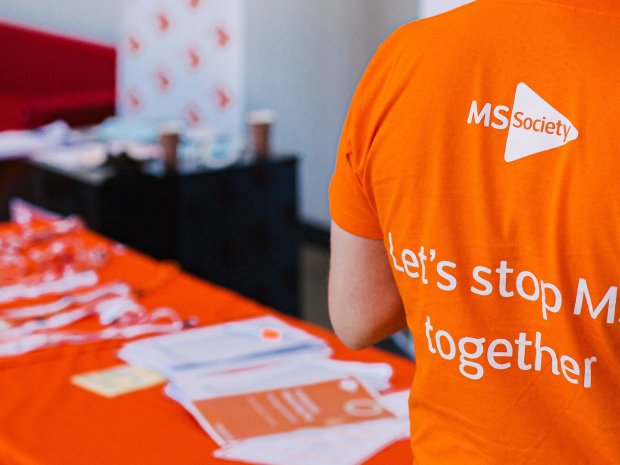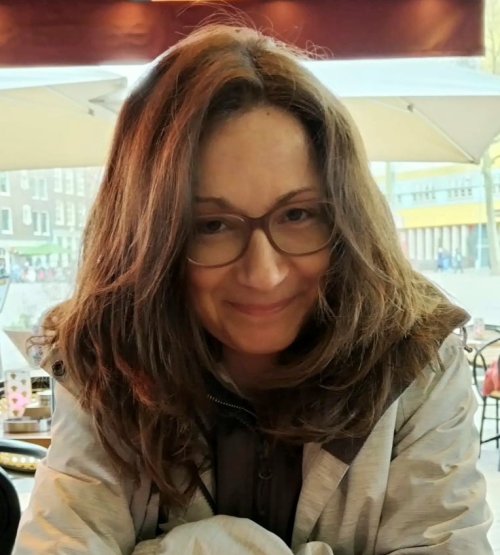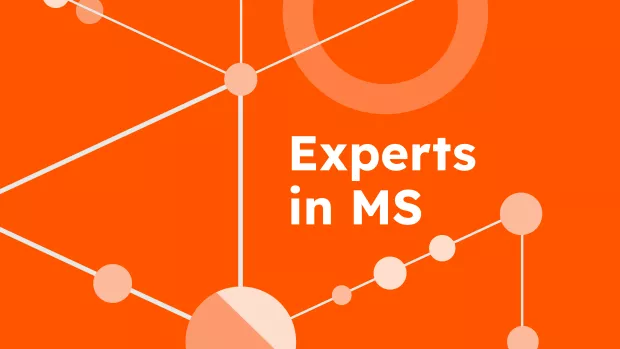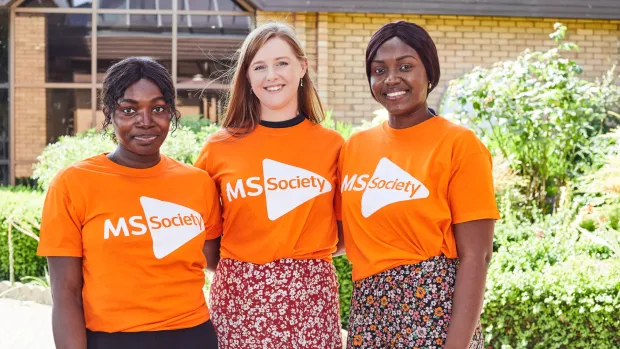
Introducing our Regional Development Officers
Gina’s one of our Regional Development Officers. She explains how she can help health and social care professionals develop services in her region - to meet the needs of people with MS. We’ve got people doing work like Gina across the UK.
Listening to our local communities
My job is all about developing connections with communities in my area – in the East of England. That’s people living with MS, MS health and social care professionals, and other organisations who can help improve MS services.
Listening helps shape everything we do. The first step is always to understand what matters most to people locally. And then we can all try to address the issues in whatever way we can.
And lots of the services we deliver locally can only happen because of the hard work of our amazing volunteers.
Part of a bigger team
I often think I’m very lucky to find a job like this, one that’s so varied and interesting. And I’m one of nine Regional Development Officers in regions across England. There are similar roles in Scotland, Northern Ireland and Wales, called Community Development Officers. So there’s one of us nearby wherever you are in the UK.
The services and support we develop
There’s a long list of services and support we’ve helped develop. They’re mostly bespoke services that meet local needs and opportunities. Examples include:
-
exercise classes
-
benefits advice service
-
information events
-
self-management workshops
-
social events.
Sadly not everything is possible everywhere. There are limits to everyone’s capacity, and funding can be a frustrating barrier sometimes. But we work with what we’ve got and sometimes find solutions outside the area – for example through our UK-wide services.
A key part of our role is increasing the reach and visibility of the MS Society – helping people with MS and health and social care professionals know about the services and support that exist.

Finding the local opportunities
The way we work varies hugely from region to region – and even within our regions, on a very local level. My region – East of England – covers Cambridgeshire, Norfolk, Suffolk, Essex, Bedfordshire and Hertfordshire. So there are no big cities but plenty of rural towns and lots of coastal areas.
There are some pockets of deprivation, and lots of areas have poor transport links. Some of my colleagues in other regions work across large urban areas. So we each have different opportunities and challenges that affect how we need to work.
Face-to-face support and information
A key part of our role is increasing the reach and visibility of the MS Society – helping people with MS and health and social care professionals know about the services and support that exist. There are so many services people can access by phone or online.
But some people also want, and need, face-to-face stuff – to connect with their peers and to be in a room with other people who are also living with MS.
Most people want information about local support too. And these are all things we can work with health and social care professionals, and our fabulous network of volunteer groups to help deliver face-to-face, locally.
Partnerships with professionals
Partnerships with health and social care professionals are crucial to the success of much of our work. It can be one of the most effective ways to reach people who don’t know about the help we offer.
And alongside people with MS, health professionals help us understand the needs and priorities of local people living with MS.
Health professionals often work with us to deliver our information events. They give presentations about symptoms, wellbeing, and information. Or they introduce their role and service – that introduction can break down barriers and build confidence with people affected by MS.
And in the give and take of our partnerships, we can provide great support to MS professionals – using our expertise and resources to help shape bespoke new services and support.
Email us if you’re a health or social care professional and you think we might be able to help with something. Just let us know where you are in the UK so we know who’s best placed to help. Get in touch at [email protected].

